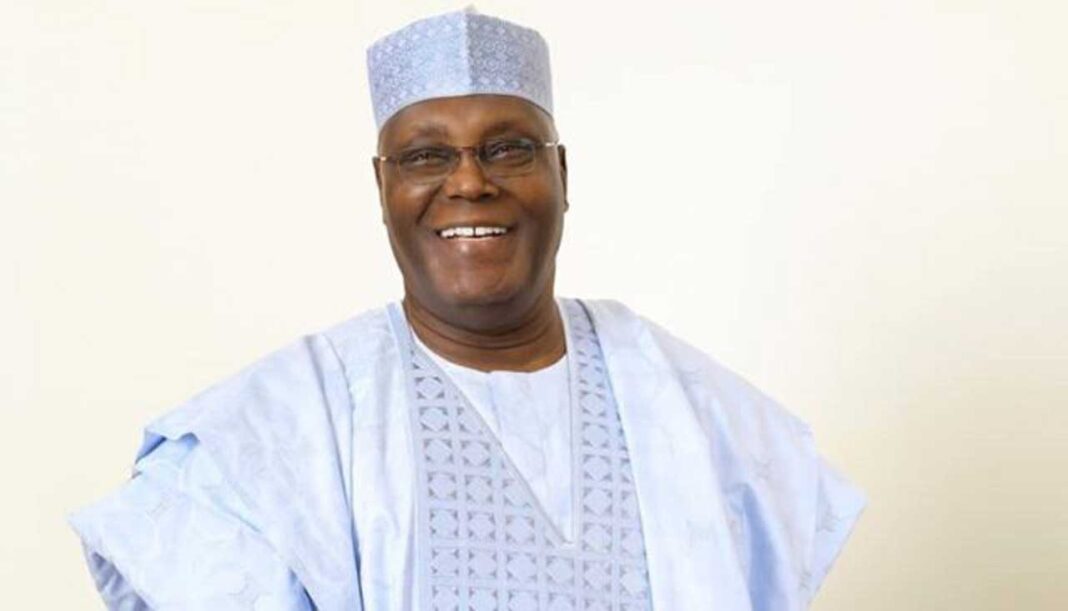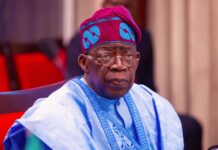By Okoh, Aihe
It was my friend’s day last week, July 7, 2022. Aaron Ukodie, Arumata, as l call him with fond love, excavated a piece of telecoms history and burnished it into the nation’s telecoms walk of fame, that will outlive all of us, even those who pray to live forever.
One of the very few pedantic guys in the journalism profession who is given to sustained scholarship, Ukodie released yet another book on the telecommunications industry, titled: Nigeria Drivers of Digital Prosperity. This is not a review of the book, which will come with time but I salute his tenacious spirit and such a selfless commitment to force a reading culture on a people that are mostly discomfited by unhealthy politics and epidemic misgovernance.
The beauty of non-fictive work is its capacity to be contentious while equally yielding opportunities for verifications. The constellation of faces at the event is a validation that Ukodie has attributed honour to those deserving apart from a few faces that were obviously interlopers and of little consequence to the industry as far as history is concerned.
The story of telecoms growth in Nigeria which Ukodie will not let go, is an emotional one. Those born after 2001 and grew up to the fancy of mobile phones would not know that for years Nigeria’s telecoms industry was compared to the worst in the world; people who were not fortunate and rich enough to own a table phone (and there were less than 350, 000 for the nation’s huge population), went to stay in NITEL offices across the nation to make or receive international calls. We lived with that situation and lived with so many governments who didn’t know what to do about the sector and truly held the people down to Stone Age practices.
One day the story changed. Events from 1999 preceded this. One of those on ground to unveil Ukodie’s book was Alhaji Atiku Abubakar, the presidential candidate of the People’s Democratic Party (PDP) who was hailed in the book for being a primary player in the events leading to an industry tipping point in 2001.
Speaking through Barrister Uyi Giwa-Osagie, Atiku who thanked Ukodie for giving him a place in the chronicles of the telecoms industry, recalled the times leading to a groundswell of growth in the industry, adding that it is possible now to take the industry to the next level of growth. As Vice President and head of the economic team which included some of the best brains Nigeria offers the world, Atiku witnessed first hand the fruits of modern telecommunications technology and its transformative capacity in the life of a nation.
In his words, “The evolution of the country’s ICT and telecoms industry, started with the GSM which was launched in August 2001 under our administration, and has since revolutionized the face of ICT in Nigeria. In February 2002, I inaugurated a 22-member Telecommunications Sector Reform Implementation Committee, aimed at increasing access to phone services for Nigerians, primarily through the GSM, and further facilitated all necessary licensing for GSM to come into effect in Nigeria. This is an achievement I am entirely proud of and further reinforces my credentials as a digitally inclined leader, aware of revolutions that need to take place for our country to move forward and reach her full potential.”
He confessed that “as a leader, I have seen first hand the significant impact digital technology creates across the different sectors of our economy, and the endless opportunities that remain untapped. On this continuous journey, I feel a responsibility to continue to support Nigeria and the young people of Nigeria, on its digitization agenda, and this forms a core part of my campaign promise and delivery to the Nation, in my current quest to be the next President of the Federal Republic of Nigeria, come May 29, 2023.”
This was the peg line for most of the stories that were published from that event. It is my opinion that track records are important. They become more ennobling if the holder initiated a process which with more understanding, he further wants to consolidate. The problem with us is that quite a number of people canvassing for public office have little to point to apart from an entitlement mentality or just to fulfil an ambition that invalidates other people’s pride and claim to humanity.
One other significant development for me was Atiku’s profuse acknowledgment of the contributions of other people who made up the team, unlike most other politicians who think every achievement is traced to their might and brilliance. He demonstrated that he is a team player with a knack to mobilise rich human resources to achieve results. He readily commended the role of the regulator, the Nigerian Communications Commission (NCC) and a number of the industry players who were in that hall.
Engr Ernest Ndukwe was in the hall. The man who eventually earned the sobriquet, Mr GSM (by the way, GSM means global system for mobile communications), told a gathering at a programme in Abuja in October last year, that Atiku had a hand in his appointment as the Executive Vice Chairman (EVC) of the NCC and also created such a perfect working relationship for the Commission to flower into a growth that would attract the envy of the world. Atiku was at that event in Abuja as well and his repartee jolted memories of a period in history that landmark achievements could easily be pointed to.
Dr Emmanuel Ekuwem, Secretary to the Government of Akwa Ibom who was an industry player at the time also answered the call by Ukodie. Each time we needed to canvass deep knowledge of the industry, each time we needed somebody to bring simple understanding to tech lingos, Ekuwem was there as a ready resource personality.
So it is a little bit nauseating for me that so much invectives flow in the social media and Atiku attracts quite a percentage, which is plainly ironic. Here you have a man who played a primary role in instigating a process that put mobile phones in the hands of his people becoming a victim of a system that would fail progressively, as governments come and go.
I do not expect the younger generation to understand the emotions that swirl inside me. But I remain grateful to former President Olusegun Obasanjo and his vice, Alhaji Atiku Abubakar for their unselfishness in bringing life and growth to the telecommunications sector. It was shameful at the time, really embarrassing to travel to a remote part of the world and be unable to communicate with people at home.
It is not only personal communications that were enabled. Their effort provided an enabling superstructure to carry the rest of the industries, whether manufacturing, engineering, construction, banking, entertainment, hospitality business, ticketing for road, rail and air travels, social relationships and in fact in nearly every strand of life. Telecommunications affect them all.
We were never part of the global telecoms story except when consigned to failure. The lethargy and official myopia in high places now also enjoyed preponderance pre-1999 when the base for a change of story was gradually erected. My little appeal is that when you hold that little tool – mobile phone – in your hand and you plan to do evil with it, always be constrained by the fact that those who brought it to Nigeria meant well.
Okoh, veteran ICT journalist, retired recently from NCC, as Deputy Director, Public Affairs












